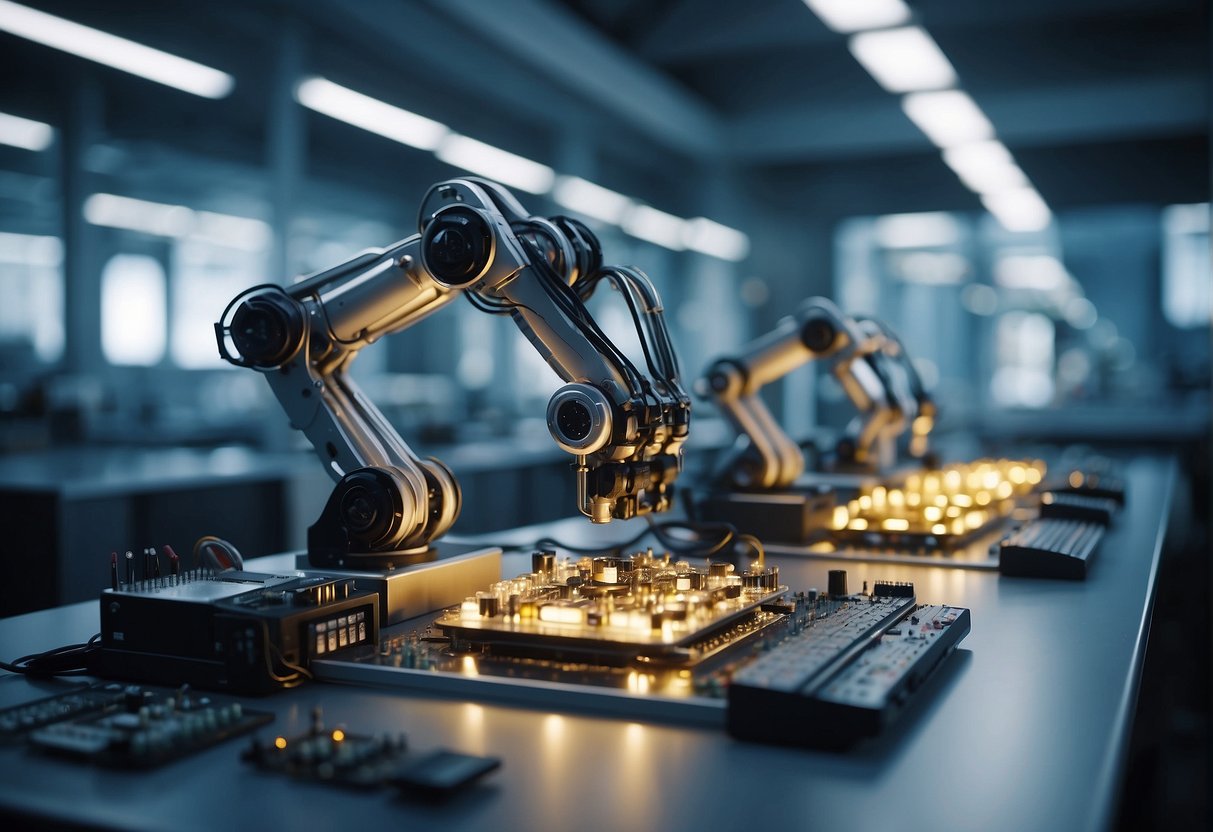
Artificial Intelligence (AI) continues to make remarkable strides in a multitude of sectors, propelling what is often referred to as the fourth industrial revolution. Each year, advancements in AI are not just theoretical but pragmatic, translating into improved efficiencies, novel products, and enhanced services. In 2024, the AI landscape is marked by its foray into complex problem-solving and innovative applications that redefine industries. These strides are largely due to the integration of AI into broader digital transformation initiatives, ensuring that AI solutions are not standalone novelties but integral to the operational fabric of businesses.
The hot trends in the AI space, as seen over the last year, have been influenced by a combination of technical innovations and practical applications of existing technologies. Computer vision systems have become more capable, as enhancements in processing images have led to more accurate estimations and predictions. AI has also started to play a more pivotal role across diverse sectors, from healthcare diagnostics to advanced cybersecurity protocols. These advancements are paralleling the viral spread of sophisticated chatbots, which have brought AI’s potential into the public’s daily interactions.
Simultaneously, the rapid development of AI technology has called for more stringent regulations. Policymakers and ethical experts are collaborating to address the limitations and risks associated with AI, ensuring that it augments human potential rather than supplanting it. Regulations are emerging to guide the responsible use of AI, aiming to protect privacy, ensure security, and maintain fairness. As such, the future of AI is not only shaped by technological breakthroughs but also by the frameworks that govern its use, ensuring the burgeoning field matures with social responsibility at its core.
AI Innovations and Market Dynamics

As artificial intelligence continues to evolve, it is reshaping industries and creating new dynamics in business competitiveness and regulatory landscapes.
Generative AI and Language Models
Generative AI has surged to the forefront of technological innovation, with language models such as GPT-3 and GPT-4 powering advanced chatbots and generating content. Companies utilizing generative models are gaining a competitive advantage by automating creative processes and enhancing customer interactions. Deep learning techniques underpin these models, enabling a nuanced understanding of natural language, which in turn fuels diverse applications, from HR and management to marketing.
AI in Business and Industries
The integration of AI across various industries—including sales, finance, and marketing—signifies a major digital transformation. The use of AI for predictive analytics and customer service robots is creating efficiencies and new opportunities for competitive advantage. Businesses are adopting AI not only to streamline operations but also to innovate, with a significant impact on management practices and decision-making processes. The embrace of AI by companies is underscored by the need to maintain relevance in an increasingly digital world.
Ethics, Regulation, and Public Policy
The rapid expansion of AI raises critical concerns regarding ethics and cybersecurity. Regulations such as the proposed AI Act seek to establish a framework for the ethical deployment of AI while ensuring public trust. Policymakers are focusing on creating policies that strike a balance between innovation and the protection of citizens’ rights. The conversation around AI regulations and public policy highlights the need for transparent and accountable AI systems, as artificial intelligence becomes an integral part of the social and economic fabric.
Technological Advancements and Research
Exploring the latest developments within the AI sector reveals significant strides in efficiency and application, pushing boundaries in healthcare, hardware, creative media, and presenting new horizons and dilemmas.
AI in Healthcare and Drug Discovery
AI’s role in healthcare is becoming increasingly critical with deep learning algorithms enhancing drug discovery processes. Machine learning techniques have accelerated the identification of potential drug candidates, streamlining preclinical research. This integration promises to reduce development times and costs, while raising effectiveness of treatments.
Advancements in AI Hardware and Efficiency
On the hardware front, advancements in AI are focused on overcoming physical constraints and reducing the carbon footprint. New architectures, such as Retentive Networks, are designed for greater inference efficiency and improved parallelism, tackling the energy demands associated with large-scale AI computations that typically rely on cloud-based services.
AI Applications in Software and Data Science
Software and data science are also being transformed by AI, with generative AI and knowledge graphs offering unprecedented analytical power. Data scientists and software engineers utilize these tools for automation and extracting insights from massive datasets, providing a competitive advantage across various industries.
Evolution of AI in Media and Creative Fields
In media and creative sectors, AI has spawned innovations like DALL-E and other generative AI systems, capable of producing AI-generated content for social media, games, and marketing. While highly creative, they also have brought issues such as deepfakes to the forefront, challenging existing policies and regulation.
Emerging Challenges and Opportunities in AI
With the rise of AI applications comes a new set of challenges, particularly around cybersecurity and ethical considerations. The potential for AI to automate knowledge work prompts discussions on regulatory measures, while also opening doors for novel opportunities in human-AI collaboration.